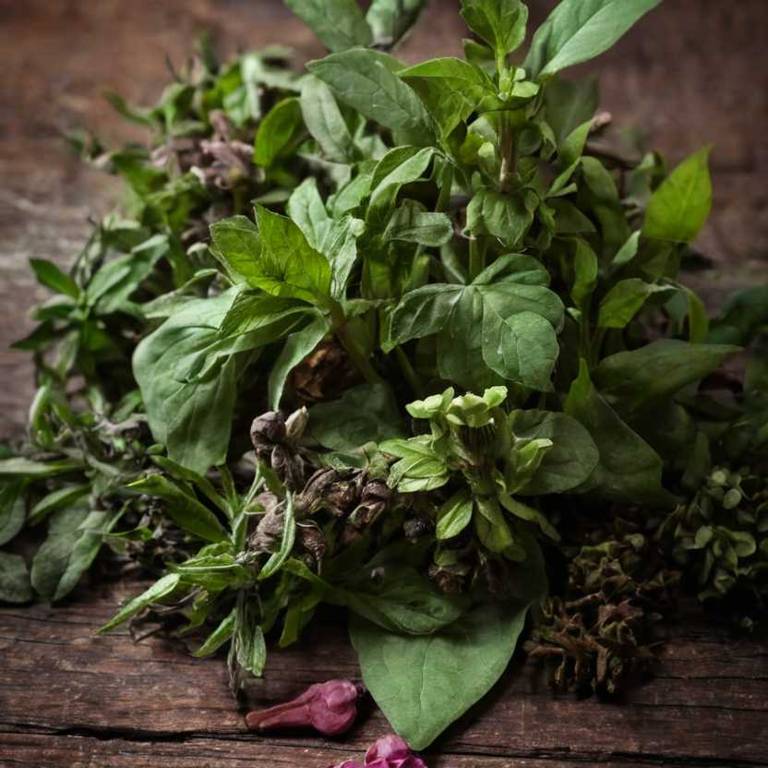By Leen Randell
Updated: Jul 05, 2024
What Are The Medicinal Properties Of Rehmannia Glutinosa (Chinese Foxglove)?

Rehmannia glutinosa, also known as Chinese foxglove, has health benefits such as promoting kidney function, supporting immune system, and acting as an anti-inflammatory agent.
The medicinal constituents of this herb include alkaloids, flavonoids, and polysaccharides, which contribute to its therapeutic effects. Rehmannia glutinosa is often used in traditional Chinese medicine to make tonics and decoctions, which are taken orally to prevent and treat various health conditions. However, excessive consumption of this herb may lead to gastrointestinal problems, such as diarrhea and nausea.
It is essential to consult a healthcare professional before using Rehmannia glutinosa, particularly for pregnant or breastfeeding women, as it may interact with other medications.
This article explains the health benefits, active constituents, medicinal preparations, possible side effects, and precautions related to Rehmannia glutinosa.
- What are the health benefits of Rehmannia glutinosa?
- What are the active constituents of Rehmannia glutinosa?
- What are the medicinal preparations of Rehmannia glutinosa?
- What are the possible side effect of using Rehmannia glutinosa improperly?
- What precautions to take when using Rehmannia glutinosa medicinally?
What are the health benefits of Rehmannia glutinosa?
Rehmannia glutinosa, also known as Chinese foxglove, has health benefits such as reducing inflammation and improving kidney function.
It is often used to treat menopausal symptoms and has been shown to have antioxidant properties. Traditional Chinese medicine considers Rehmannia glutinosa a longevity-promoting herb, believed to improve overall health and well-being by nourishing the body and regulating the immune system.
Research suggests its potential in preventing age-related diseases and promoting healthy aging.
Here's a detailed article about the 10 health benefits of Rehmannia glutinosa.
What are the active constituents of Rehmannia glutinosa?
Rehmannia glutinosa, also known as Chinese foxglove, has active constituents such as alkaloids, iridoids, and phenolic acids, which are responsible for its medicinal properties.
The iridoids, including catalpol, are reported to exhibit anti-inflammatory and antioxidant effects, while the alkaloids, including rehmanine and rehmannine, may contribute to its immunomodulatory and hemostatic effects.
These constituents contribute to Rehmannia's traditional use in treating conditions such as blood disorders, fever, and inflammation.
Here's a detailed article about the 10 active constituents of Rehmannia glutinosa.
What are the medicinal preparations of Rehmannia glutinosa?
Rehmannia glutinosa, also known as Chinese foxglove, has medicinal preparations such as capsules, tablets, and decoctions, which are used to treat various health conditions.
The plant's roots and underground stems are rich in saponins, which are believed to have anti-inflammatory and antioxidant properties. Rehmannia glutinosa is commonly used in traditional Chinese medicine to promote energy and vitality, improve cardiovascular health, and support the immune system.
It is also used to treat conditions such as anemia, insomnia, and digestive problems.
Here's a detailed article about the 10 medicinal preparations of Rehmannia glutinosa.
What are the possible side effect of using Rehmannia glutinosa improperly?
Improper use of Rehmannia glutinosa, also known as Chinese foxglove, increases the chances of experiencing side effects such as stomach upset, nausea, and diarrhea.
Overdosing can lead to more severe issues, including bleeding disorders, and interactions with blood thinners. Long-term use may also cause fatigue, weight loss, and decreased immune function.
Additionally, some individuals may experience allergic reactions, such as skin rashes or itching, when using this herb.
Here's a detailed article about the 10 most common side effects of Rehmannia glutinosa.
What precautions to take when using Rehmannia glutinosa medicinally?
Before using Rehmannia glutinosa, also known as Chinese foxglove, for medicinal purposes, you must take precautions such as consulting with a qualified healthcare practitioner to determine the correct dosage and ensure safe use.
The herb can cause gastrointestinal side effects, and excessive consumption may lead to bleeding, hypoglycemia, and interact with certain medications.
Additionally, pregnant or breastfeeding women should avoid using Rehmannia glutinosa altogether due to its potential risks.
Here's a detailed article about 10 precautions to take when using Rehmannia glutinosa.